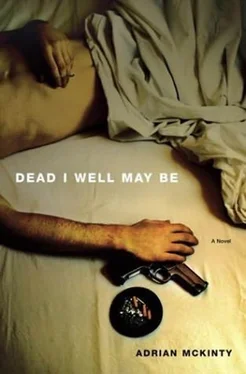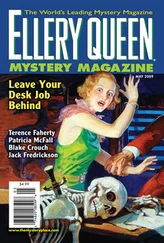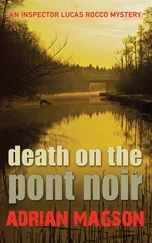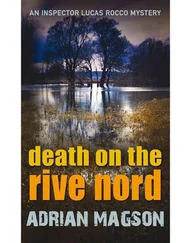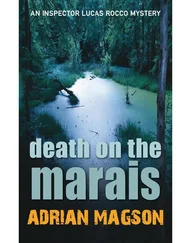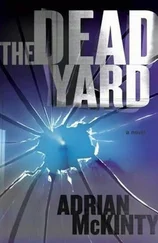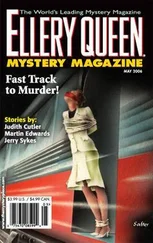A minute later, two guards dragged in first Fergal and then Andy and locked them in too. They were both unconscious. All of us had been robbed of our shoes. Andy had been in nice new high-tops that Scotchy and I had bought for him at the airport. He’d put up a real fight to keep them. He was covered in dust and blood. They seemed to have got his T-shirt, too, but I couldn’t tell, because my eyes were stinging. Fergal lay beside me, though, his polo shirt torn off him. Scotchy was bent over and hacking now.
Jesus, I said.
I closed my eyes, and when I opened them it was night. My sides were on fire and my back felt like I’d been flailed. There’d been a noise all this time, and I realized it had been Scotchy, as close as he could get to the door, yelling for medical attention. The guards came in and beat him quiet, and it stayed that way until morning. I shivered through the night, and when I woke I dry-heaved for fifteen minutes.
Bruce, Bruce, Scotchy was whispering.
Name’s not Bruce, I managed.
Bruce, Scotchy said.
What?
Are you ok?
Aye, no. Aye, I suppose, I said.
Scotchy crawled over to me. He was right at the limit of his foot chain and his whole body was stretched out so he could talk to me.
Bruce, are you hurt bad?
Not bad, I said.
Fergal’s in and out of sleep, Scotchy said. He’s ok. But Andy’s in a bad way. I think his ribs are broken. Do you know anything about first aid?
I shook my head, but we both crawled over to Andy anyway. Fergal was moaning on his side. He was in terrible pain, but at least he knew he was in pain.
Andy had been stripped to his boxer shorts. He breathed erratically in shallow, desperate little breaths, blood in his spittle. His face gaunt, horribly pale. He wasn’t conscious, but he wasn’t out, either. His lips formed words, but there was no sound. I looked at his chest. His ribs didn’t seem right, and I could see blood beneath the skin, pooling there at his lungs.
Jesus Christ, Scotchy, I think he’s dying, I said.
Scotchy looked at me, one eye closed over, his face puffy and blue.
When they come in to give us dinner, you pull the guard down and I’ll wrap my chain around his neck. We’ll say we’ll kill him unless they get a doctor for Andy, Scotchy said, cold and deliberate.
I nodded. I really didn’t see how it could work, but what choice did we have?
I heard you yelling, I said.
Aye, they just come in and shut you up, Scotchy murmured.
We waited and girded our strength, and the light started to come in the little cell window. We heard the whistle blow and the prisoners get let out. The afternoon became very hot and the day dragged by.
Andy’s lips were parched, and he was paler than before. Each breath was a tremendous effort. We crawled over to him.
Andy, if you can hear me, it’s going to be ok. We’re going to get you some help, I said.
Aye, we are, big lad, we’re not going to let you down, Scotchy agreed.
The afternoon ended and finally the door opened. I rugby-tackled the guard, but he kicked me off easily and I sprawled against the back wall, my chain going taut and almost dislocating my ankle.
Doctor, doctor, doctor, doctor, Scotchy was pleading and pointing at Andy.
The guards ignored him, left the food and water, and went out. We tried to give Andy some water, but he choked when we brought it to his lips.
The guards came back for the wooden bowls, and we grabbed some handfuls of rice.
Dying, morto, morto, I yelled, hoping they would understand. The guards looked at Andy for a moment, then closed the door. They went away, talking, and we held out hope that they would send someone. We waited and waited, but no one came.
In the evening, Fergal was fully awake and doing a little better, and we took turns cradling Andy’s head in our laps. We didn’t know what to do. None of us had any medical experience. All I knew was the recovery position thing. I held Andy and told him it was going to be ok. His breathing was even shorter. Fergal relieved me after a while, and I lay down. Night came, and sometime after midnight Scotchy shook me awake. Fergal was beside him, his eyes vacant in the moonlight.
What is it? I asked.
Andy died, Scotchy said, simply.
I sat up. I looked at Fergal, who nodded.
Are you sure? I asked. It was a stupid question. Scotchy didn’t answer it.
I suppose he wasn’t fully recovered from that first hiding, Fergal said.
No, they murdered him, they murdered him, Scotchy whispered. They killed him.
I crawled over to Andy and touched his hand. It was cold. They’d closed his eyes.
Jesus, Andy, oh Christ, I am so sorry, I said. Fergal patted me on the back. Scotchy spat and then, turning to the pair of us, he said:
If I don’t get back I want youse to promise me you’ll see to Big Bob. You’ll see to him, promise it.
We both nodded.
Scotchy lay down on the floor. I wiped a mantis off my arm. I put both arms under my head and curled my knees almost up to my chin.
I closed my eyes, and, after a time, I slept.
Yes. It’s true. We’re lost. We’re in a boat on the wild ocean. The seas are high, and there is no compass. We’re fucked. Blind. Ignorant. The night bewildering and there is no dawn. We are outside latitude or longitude or maps. No land, no dead reckoning, no horizon. Fucked in spades. In this cabin of stale air, with asthmatics, fellow fools before the mast, who know no shanties but who cough nocturnes for me. But they’re more doomed than me. I’m ok, really, for I’m not with them. I am not a boy or a man, rather I am a cow, or a black buffalo, or a bird, or a tiny caterpillar crawling under the door. I am, that is, until one of the others wheezes or says something and I’m back again, a haunted passenger, seasick, lost, fucked.
I close my eyes and lean back and open them.
Days go by.
And it’s not that bad, for I have, as contingency, made myself another world. I’ve been staring at the ceiling, lying on my back, head on the straw, arms on my chest. There are above me valleys, ridges, craters, lines. Funnel cobwebs in the corner. The color is a washed-out gray. Often I imagine they’re cities, rivers, an aerial map of a country. The topography is surprisingly uneven; it’s a mountain kingdom. We haven’t been talking much, so I’ve been building a story of an imaginary civilization. The big crack down the middle separates two continents that are at war. They’re always at war. There are canals, too, like the ones Percival Lowell used to see on Mars. The continent nearest the door is drying up, dying, so the inhabitants want to conquer their neighbors. The continent near the tiny barred window hole has plenty of water; those people live an agricultural, tractable existence, though occasionally death comes to Arcadia, for there are damp and flood marks. The window continent also has the spiderwebs, and I imagine these are desperate, impenetrable morasses where only fools go, of which in a pastoral idyll there are many.
There are wars and negotiations and sometimes individual narratives within the grander themes. There are factions and religions, and perhaps down here we are gods.
My story gets interrupted in the morning for a feature. The window lets in the sunlight and every day there’s a black-and-white movie: shadows marching across the canyoned ceiling surface, slowly, for about three hours and then they disappear. It’s not much of a show, but the plotting is at least linear and unconflicted.
It’s been a fortnight, and we are lousy, scabrous, and covered in bites. Our wounds have not healed well. Fergal sits towards the corner nearest the light. He’s filing part of my belt buckle into a lock pick. He thinks the locks on the leg irons could be reasonably straightforward to pick since they’re all standard bolt jobs from the seventies. Fergal was a jemmy for a while, so maybe he would know, but Scotchy and I, unfortunately, know Fergal too well to hold out much hope. In any case, the lock on the door needs a big thick key and we don’t have the metal, so Scotchy doesn’t see the point of getting us out of the leg irons if we could never open the door. But he’s only saying that. He needs it as much as both of us.
Читать дальше
